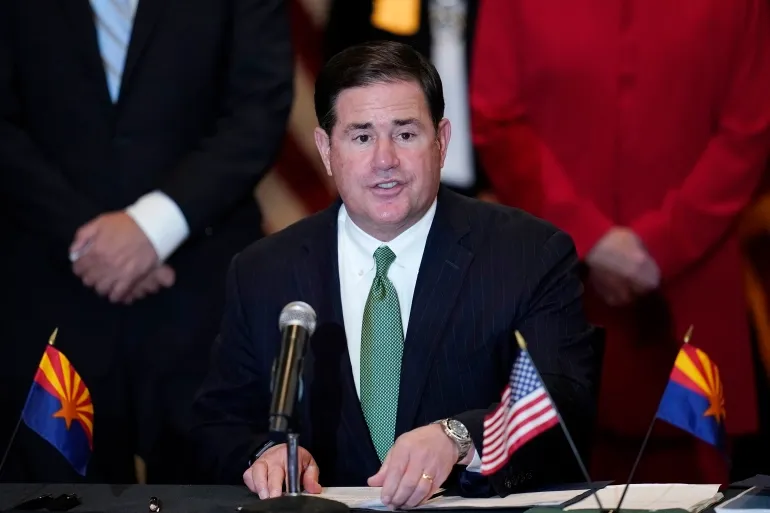Ariz. Gov. Visits Taiwan To Discuss Semiconductors
On Tues., Arizona Gov. Doug Ducey traveled to Taiwan for a trade mission focused on the multi-billion dollar market of semiconductors, as the state seeks suppliers for a new $12B Taiwan Semiconductor Manufacturing Corp. (TSMC) plant in Phoenix.

Facts
- On Tues., Arizona Gov. Doug Ducey traveled to Taiwan for a trade mission focused on the multi-billion dollar market of semiconductors, as the state seeks suppliers for a new $12B Taiwan Semiconductor Manufacturing Corp. (TSMC) plant in Phoenix.
- TSMC, which reportedly produced more than 90% of the world's semiconductors in 2021, announced last year that it would invest $3.5B in the Arizona factory.
- Nearly all electronic devices, including computers, smartphones, medical equipment, modern vehicles and high-tech weapons systems, require semiconductors.
- Earlier in Aug. - amid growing concerns about relying too heavily on Taiwan as tensions with China mount - Biden signed the CHIPS and Science Act, offering more than $52B over five years in subsidies to encourage corporations to manufacture semiconductors in the US.
- During his tour, Ducey is expected to meet with Taiwan's Pres. Tsai Ing-wen and industry leaders. This is the latest in a string of recent visits by US officials to the island of Taiwan, despite China's strong opposition.
Sources: Al Jazeera, Blaze, ABC, CNN, and Nikkei.
Narratives
- Pro-China narrative, as provided by Global Times. Secessionist forces are using Taiwan's importance in the global semiconductor market as a political tool to advance their goals. But failing to adequately take into account foreign competition and provoking tensions by catering to the Cold War mindset still promoted by the US will only harm Taiwan's own development.
- Anti-China narrative, as provided by Fortune. Semiconductor deals between the US and Taiwan are part of a broader cooperation to ensure the island's security amid growing threats and hostility from China. The so-called "democracy chips" will strengthen their ties even more and demonstrate US commitment to democracy and security in the Indo-Pacific.
- Establishment-critical narrative, as provided by China Daily. Continued high-level visits to Taiwan merely serve to undermine the US's commitment to its "one-China" policy. The UN, along with most nations worldwide, recognize Taiwan as a province of China "with no separate status." US posture towards the island is becoming increasingly dangerous and is part of its efforts to contain China, now that the country has become an economic powerhouse.






